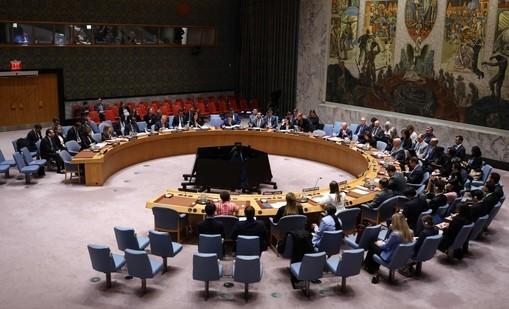
Was LeT involved? UNSC asks Pak on J&K attack, refuses to accept ‘false flag’ claim
The United Nations Security Council (UNSC) has refused to accept Pakistan’s “false flag” narrative on the recent Pahalgam attack in Jammu and Kashmir, reports suggest. In a closed-door meeting called by Pakistan, UNSC members instead questioned whether the terror outfit Lashkar-e-Taiba (LeT), based in Pakistan, was likely to be involved in the attack.
For those who may not be aware, the Pahalgam attack occurred on October 11, 2022, when a group of terrorists ambushed a tourist bus in the Pahalgam area of Jammu and Kashmir, killing 11 people and injuring several others. The attack sent shockwaves across the region, with many condemning the act of terrorism and calling for the perpetrators to be brought to justice.
Pakistan, however, quickly jumped to the defense of its own nation, claiming that the attack was a “false flag” operation designed to tarnish its reputation and create a rift between India and Pakistan. Islamabad has been accused of using this tactic in the past to distract from its own human rights abuses and to curry favor with its allies.
However, UNSC members were not convinced by Pakistan’s claims, and instead, they pressed for answers about the involvement of LeT in the attack. LeT, also known as the Army of the Righteous, is a designated terrorist organization that has been responsible for numerous attacks on Indian soil, including the 2008 Mumbai terror attacks.
Some UNSC members reportedly brought up the targeting of tourists on the basis of religion, suggesting that the attack had all the hallmarks of a LeT operation. LeT has a history of targeting minorities, including Hindus and other non-Muslims, in an effort to spread fear and violence across the region.
The UNSC’s skepticism of Pakistan’s claims is not surprising, given the country’s long history of supporting and harboring terrorist organizations. Pakistan has been accused of providing safe haven to numerous terrorist groups, including LeT, and has used them as pawns in its efforts to gain influence in the region.
In recent years, Pakistan has faced increased pressure from the international community to crack down on terrorist organizations operating within its borders. However, Islamabad has been slow to take action, and has instead continued to provide support and resources to these groups.
The Pahalgam attack is just the latest example of Pakistan’s failure to take concrete action against terrorism. The attack has sent a chilling message to tourists and locals alike, and has raised concerns about the safety and security of the region.
In the aftermath of the attack, Indian authorities have launched a thorough investigation into the incident, and have arrested several suspects in connection with the case. However, the investigation is ongoing, and it is unclear at this time whether LeT or any other terrorist organization was involved in the attack.
The UNSC’s refusal to accept Pakistan’s “false flag” narrative is a significant development in the ongoing saga of terrorism in the region. The international community must continue to put pressure on Pakistan to take concrete action against terrorism, and to support efforts to bring those responsible for the Pahalgam attack to justice.



